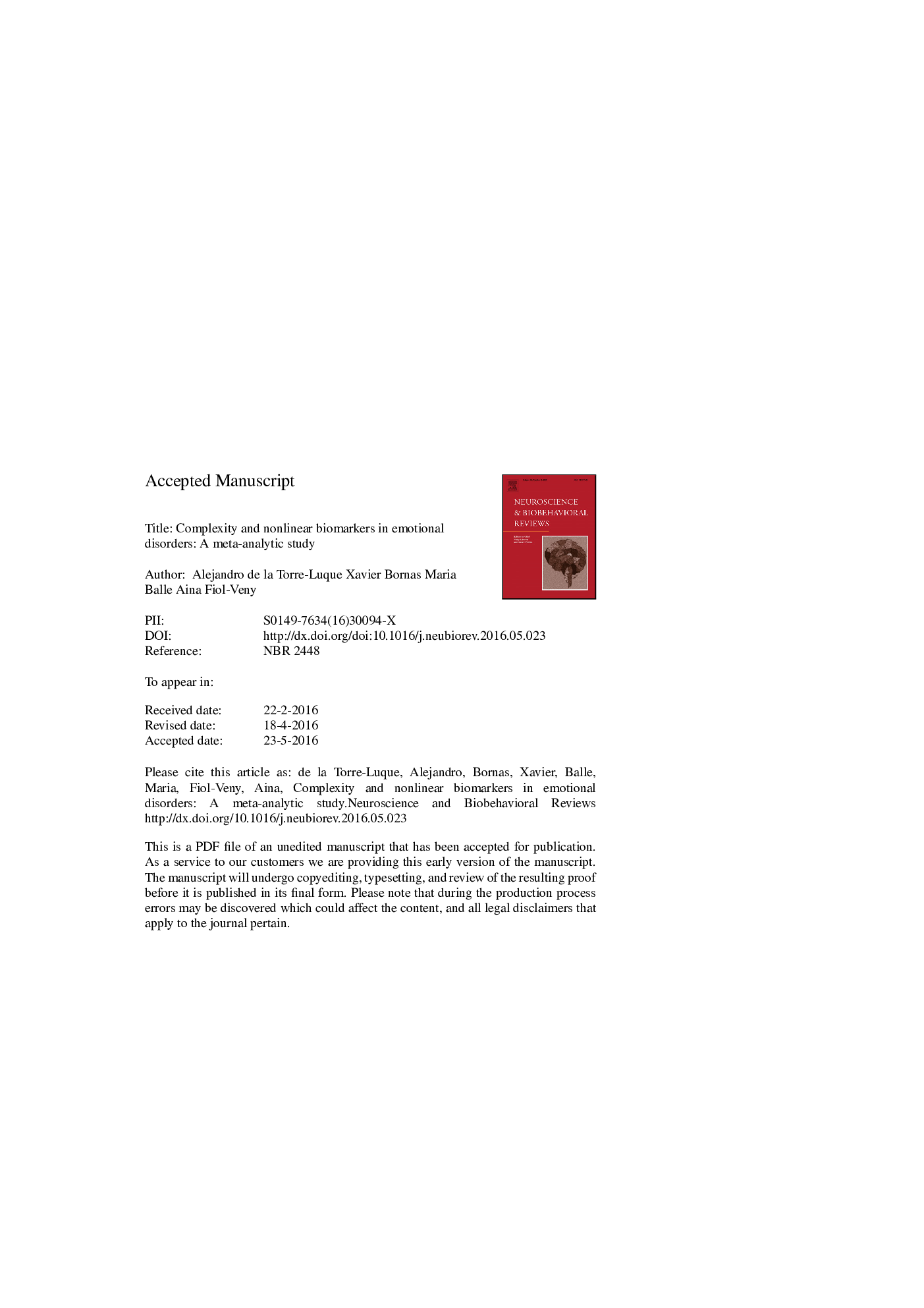| Article ID | Journal | Published Year | Pages | File Type |
|---|---|---|---|---|
| 7302874 | Neuroscience & Biobehavioral Reviews | 2016 | 59 Pages |
Abstract
This meta-analysis aimed at gathering and summarising the findings on nonlinear biomarkers in the field of emotional disorders under the hypothesis that diseased systems show lowered complexity and hence less flexibility to adjust daily contexts. Scientific manuscripts from 1970 to 2014 were reviewed, 58 articles were analysed, and independent meta-analyses on anxiety disorders, bipolar disorders, and depressive disorders were conducted. Results revealed that anxious patients exhibited lower complexity than controls (p < 0.05) despite panic patients showed more irregular respiratory activity. Inconclusive results were found for bipolar patients but pointed to higher randomness when suffering manic episodes. Finally, depressed patients showed a loss of complexity in the cardiac system and a loss of orderliness (despite a higher complexity) in brain and stress-related hormonal systems. As a conclusion, our findings highlight that either a loss of complexity or a loss of ordered complexity characterise the physiological systems of patients with emotional disorders. Several considerations for complexity, its related measurements, and suggestions for further research are discussed.
Related Topics
Life Sciences
Neuroscience
Behavioral Neuroscience
Authors
Alejandro de la Torre-Luque, Xavier Bornas, Maria Balle, Aina Fiol-Veny,
